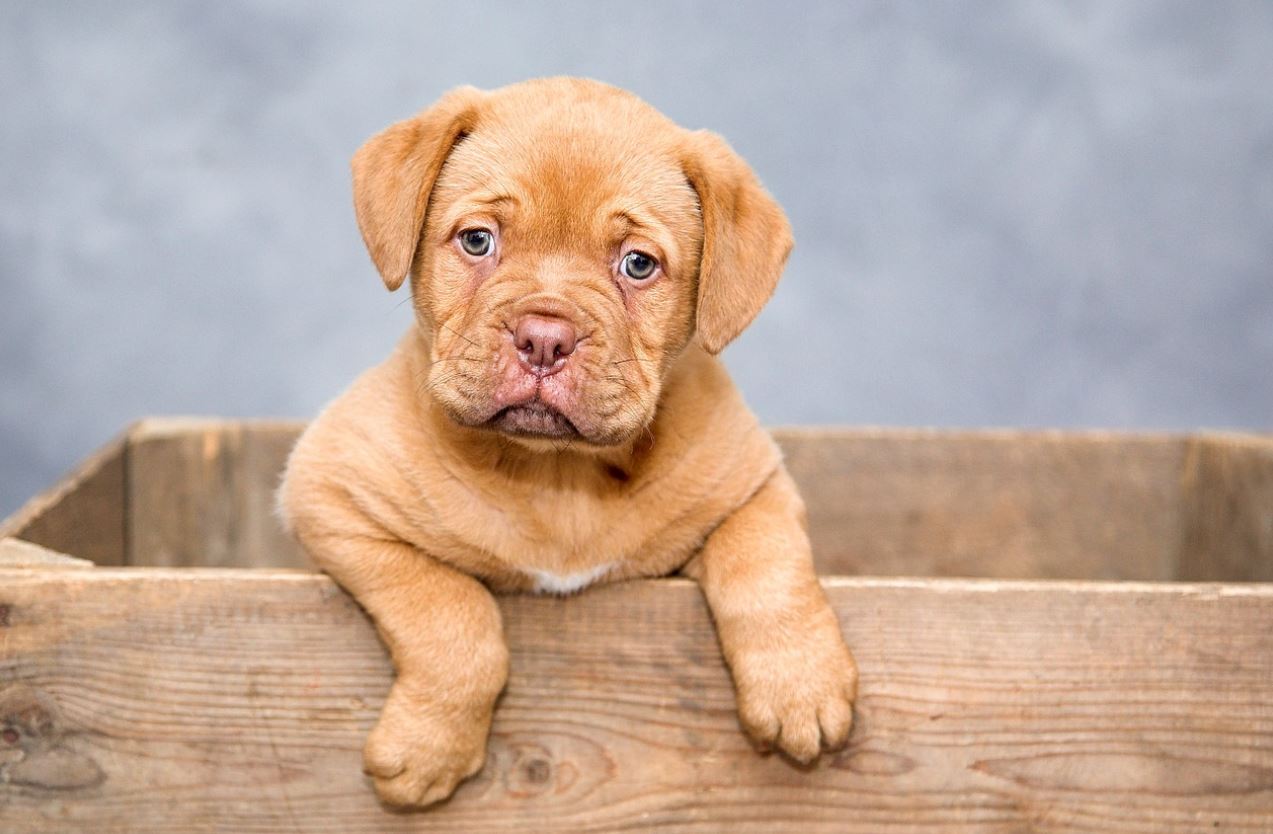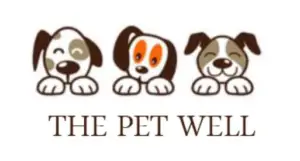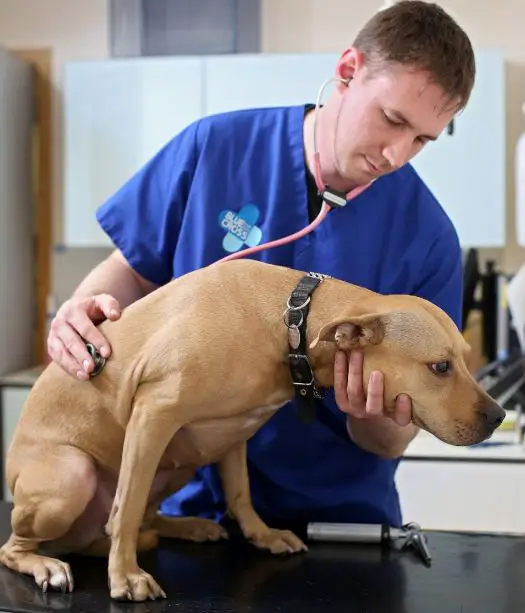Is Diarrhea In Puppies Normal? Care Tips, Treatments & Guide

Your puppy squats down, and you hear that dreaded sound of a squirt, you know the end result isn’t going to be good.
One thing to remember is that diarrhea is common in puppies, so being familiar with the symptoms and signs is essential.
A severe case of diarrhea can be deadly for your puppy, so being aware of what is a mild case and what is severe is important.
Diarrhea can be caused by many different issues, from a bad case of indigestion to a potentially lethal virus.
As an informed pet owner, you know that many minor and severe illness list diarrhea as one of the main symptoms.
So, it may be hard for you to determine just why your little guy is so sick.
What Causes Diarrhea in Puppies?

There are several main reasons why your puppy has diarrhea. When you notice a change in your puppy’s stool, you should call your vet.
But if your puppy is still playing and running around, you may be able to treat it at home.
But if diarrhea lasts more than a few days, has blood in it, is liquid, or your puppy is vomiting and is weak, call your vet immediately.
If your puppy has stools that look like pudding, call your vet and tell the vet about any other symptoms.
Your vet may recommend home treatment instead of having to bring your pup to the vet’s office.
Some of the causes of diarrhea in puppies are:
- Bacterial infection: Salmonella, Clostridium, E. coli, and other bacteria can cause your puppy to have diarrhea. Because your pup has such a delicate immune system at this age, he can be more susceptible to bacterial infections. Bacterial diseases are severe and have other symptoms such as loss of appetite, fever, vomiting, and bloody diarrhea.
- Viral Infection: Parvovirus and distemper can be potentially fatal diseases for a puppy that isn’t vaccinated or only partially vaccinated. Viral diarrhea can also be caused by a coronavirus. All of these viruses need medical attention from your vet as soon as possible.
- Ingestion: Puppies are notorious for eating all kinds of things they shouldn’t, and your puppy isn’t an exception. If your puppy can get to it, most likely he’ll eat it, this can include anything from poisonous house plants to what’s in the garbage can. Eating garbage can cause blockages and puppy diarrhea and if your puppy eats a toxic plant, he could die or become extremely sick.
- Parasites: Parasites like hookworms, roundworms, giardia, and coccidia all can cause diarrhea in your puppy. Your puppy could have been born with them or picked them up from his adventures outside. All of these parasites require a trip to the vet immediately.
- Stress: Your puppy can become stressed just like you do, and being a puppy can be stressful. Too much handling among strange people and going places where he has never been before can cause him stress. Just becoming acclimated to the new environment of your home can cause stress related diarrhea. If this happens, place him somewhere quiet where your puppy can calm down.
When Can Diarrhea in Puppies be Life Threatening?

There are times when diarrhea in your puppy can be life-threatening.
You need to call your vet if you see any of the following signs: black tarry stools, bloody diarrhea, pale gums, fever, vomiting, discomfort, or pain.
You also need to call if you think your pup has swallowed a toxic substance or a foreign object.
If your puppy hasn’t received all his shots and is having diarrhea, you need to call the vet.
The potentially life-threatening infection parvovirus causes diarrhea and needs immediate attention.
If you notice this in the middle of the night, make an emergency call to your vet and see what they want you to do.
Sometimes they will recommend going to a 24-hour vet clinic if the vet thinks it can’t wait until morning office hours.
How to Cure Diarrhea in Puppies
If your puppy has a mild case of diarrhea and the vet approves home treatment, there are a few things you can do.
You can feed him some bland food such as white rice mixed with salt-free vegetable or chicken broth.
You can entice your puppy with a cooked sweet potato or plain canned pumpkin, not the kind for pumpkin pies, though.
You can feed your puppy yogurt, which has beneficial bacteria to help to firm up his stools and restore the balance in your pup’s stomach.
Your pup might not like the flavor, but you can mix in a few natural treats or dried food to make it more palatable.
A small pup would eat about 6 oz. of plain yogurt a day until his belly is better.
There are over-the-counter medications that you can use to give your puppy relief.
Pepto Bismol, Immodium AD, and Kaopectate are all anti-diarrheal medications that can be given to your puppy.
DiaBec is a medication that is made especially for dogs that you can purchase too. You will need to call your vet about how much to give your puppy, depending on his age, breed, and size.
If your puppy is not yet six weeks old, call your vet before administering any medication.
Dehydration is always a concern in a puppy, so make sure he gets lots of water. If your pup has sudden watery diarrhea, then large amounts of fluid and electrolytes can be lost quickly.
If your pup doesn’t want to drink water, offer him some ice cubes to lick.
You can add Gatorade or Pedialyte that is diluted in half with water to help with the dehydration too.
What About Pumpkin?
Pumpkin is rich in fiber, vitamins, and minerals, and is available all year. Pumpkin can help with digestion issues in several ways.
The fiber content in pumpkin will add needed bulk to your puppy’s stool because it absorbs water.
The fermentation of fiber will stimulate intestinal sodium, water absorption, absorb water, and lower the pH level in your puppy’s intestines.
The fiber in pumpkin will act as a prebiotic, which is different from a probiotic. A prebiotic takes beneficial bacteria and stimulates the growth of it in the intestines.
Your vet could recommend adding probiotics that contain live beneficial bacteria. For these probiotics, pumpkin act as a probiotic booster.
When you buy pumpkin, buy the plain canned pumpkin, which contains a higher concentration of nutrients and fiber than fresh pumpkin.
Never use canned pumpkin pie because it could contain xylitol, which is extremely toxic to dogs.
Pumpkin is an affordable and useful way to help with your puppy’s diarrhea but always check with your vet before treating your puppy.
How to Prevent Diarrhea in the First Place

Many times, diarrhea in your puppy can be prevented with a little common sense.
If you change your puppy’s food, do it gradually by adding the new food slowly over several days. If your puppy is kept in a kennel with other dogs, keep the kennel and disinfected.
If you have your puppy at a doggy daycare, check and make sure the place is clean and spotless.
Keep unvaccinated puppies away from your puppy until he has all his shots.
Keep your puppy’s shots up to date and have him vaccinated at the appropriate ages. Be sure to crate your puppy when he can’t be supervised, or you’re not home.
This will prevent him from getting into the trash or eating houseplants or other toxins.
Pick up after your dog and talk to your vet about the prevention of parasites.
Overfeeding Puppy Symptoms
Being able to tell the difference if your puppy has puppy rolls and being overweight is essential.
An overweight puppy can affect his health as an adult by developing medical issues.
The medical problems which can be caused by overfeeding your puppy and causing obesity as an adult are:
- Long term development issues and rapid bone growth
- Abdominal pain and bloat
- Lethargy, diabetes and shorter life span
How to tell if you’re overfeeding your puppy is to look at your puppy’s bowel movements.
If he has a normal stool in the morning but has a soft stool in the evening, then he’s being overfed.
Another way is if you can see his ribs slightly, and he has an hourglass shape, this is the proper weight for a puppy. If your puppy is overweight, it’s not too late to correct it.
You may not be giving your puppy too much food at feeding time, but have you been factoring in his treats?
Many treats have unnecessary sugar and fat added to it. You can check the pet store or where you buy your pup’s food for healthy treat alternatives.
Or, you can start him on fresh fruit and veggies for snacks.
Take your puppy for one more extra walk, or playing catch will go towards getting rid of that cubby puppy tummy.
You could also talk to your vet about a weight management program, so he stays on the path to become a healthy adult dog without issues.
Your puppy needs to grow up with a healthy ideal weight, and that rests with you feeding him correctly.
The 4C’s of Dog Poo!
Checking your puppy’s bowel movements every day might not be fun, but it’s crucial for your puppy’s health.
Looking at your pup’s feces when it’s fresh is the best time to see if there is something wrong.
It can help to determine if your puppy is sick or if everything is okay. So, to check out everything, you need to know the 4C’s of dog poop:
Content concerns: If you see big clumps of fur in your pup’s stool, he could have a skin disease, allergies, or be over-grooming.
Keep track of how often you see fur and talk to your vet about it. Your pup could also have worms if you see what looks like rice in the fresh stool. If you notice it, if the stool isn’t fresh, then it isn’t a concern
. Sometimes really odd items can be found in your pup’s stool, such as paper towels, rocks, chewed up kid’s toys, and even crayons.
Most of what goes in comes out, but you may want to call the vet and have an x-ray taken because there may be something stuck in your puppy’s digestive tract.
Coating clues: When you’re cleaning up after your pet, there shouldn’t be a trail of anything left behind.
If you notice a mucous coating, then there could be a large bowel inflammation.
This usually happens when your puppy has diarrhea if you notice it more than one day, call your vet to see what the next steps are to take.
Color key: There are healthy colors of stool and unhealthy colors of stool, you need to know the difference. When it’s chocolate brown, your pup is healthy.
If it’s green, your puppy could have an upset stomach and be eating grass. If it’s black or maroon, he could have bleeding in the small intestines or stomach. If there are red streaks present, your puppy could be bleeding from the lower gastrointestinal tract.
If the stool is yellow, your pup could be having problems with his pancreas, gallbladder, or liver. If there are white spots, your puppy could have worms.
Consistency: There is a scale your vet uses to measure the consistency of stool on a scale of one to seven. One being very dry to seven being runny, the best texture is at number two. But if your puppy’s bowel movement is a little loose, just keep monitoring him to see if it continues. You will want to pick up samples and keep them refrigerated in case your pup needs to go to the vet.
This video below may help you to be able to tell the difference in stool and what the perfect one looks like:
Taking a stool sample to your puppy’s vet appointment is good practice.
It will give the vet something to check if there are concerns and something to check against from the last appointment.
Your puppy having diarrhea can be a mild issue or a severe one.
The best thing to do is to call the vet is you see any sign of a problem with your puppy’s stool.
Many serious diseases may start with diarrhea, and you want to be sure that isn’t the issue with your furry friend.



